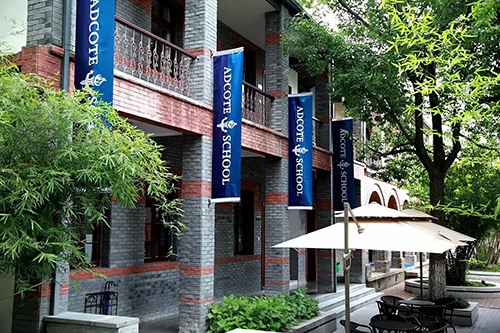全國統一學習專線 8:30-21:00
來源: 蘇州阿德科特學校 編輯:佚名
蘇州阿德科特商務與經濟學老師,博雅課程協調員,利物浦大學商學士,諾丁漢大學教育學碩士,擁有五年以上國際教育經驗。下面來談一談商務與經濟學區別在哪兒?
商務和經濟主導著各大報紙的頭版頭條,它們是政治和社會精英日日關心的議題,它們是眾多勞動人民時時牽掛的要事。無論貧富,無論受過教育與否,不論年齡大小,商務與全球經濟狀況對我們所有人都會有一個持久的影響。
Business and economics dominate our news agenda, it preoccupies the minds of political and social elites alike, and it is the first concern etched on the lips of the working man. Whether rich or poor, educated or illiterate, young or old, business and the state of the economy has an everlasting impact on us all.

這樣的影響是亙古不變的,但有時也會變得頗為棘手,因此,我們需要時刻關注它們的發展。如果一個人要在21世紀新世界立足、成功,那么對于這兩大學科的欣賞,或者說至少是基本的理解,可以說是必須的。
Its influence is unwavering and unforgiving, and as a result, its attention is forever demanding, and its appreciation, or at least basic understanding, compulsory if a person is to become successful in the 21st-century world man has built.
對于經濟學或商務的研究讓大眾得以一窺世界的基本運作模式,也讓選擇相關專業的學生了解了金融社會背后的主要驅動力。在過去的20年里,商務和經濟學作為大學生的主修科目越來越受到大學生的歡迎和尊重。而這兩大學科受歡迎程度的增加與畢業后對口專業的薪資水平相關聯:例如,倫敦政經學院(LSE)的經濟學或商科畢業生,畢業后五年的平均工資為55,200英鎊(約合70,500美元)。
The study of economics or business offers valuable insight into this world's mechanics and fundamental practices, allowing students to understand its key drivers and the forces behind them; over the past 20 years, the popularity and respect of both business and economics as a major amongst university students have been steadily increasing. This increase in popularity has coincided with the courses' monetary value to graduates; for example, economics or business graduates from the London School of Economics (LSE) earn an average salary of £55,200 (~US$70,500) five years after graduating.
然而,商務和經濟學之間到底有什么區別呢?是完全一樣?若不同,具體差異又體現在何處?還是說,兩個專業的劃分僅僅是一種營銷策略,只是為了讓大學的課程看起來更為多樣化、更具有21世紀的精明呢?
Nevertheless, what exactly is the difference between business and economics? How do the courses diverge? Or are they just the same? Their difference merely a marketing ploy to make a university's curriculum seem more diverse and 21st-century savvy?
誠然,兩門學科之間存在許多顯著的不同,這些不同表明了它們是以兩種截然不同的教育學科存在的。
There are numerous critical differences between the two subjects that explain their survival as two distinct and separate educational disciplines.
經濟學通常被認為是兩者中較為傳統的,其本質更偏理論性,研究方法中,基礎的數學運算涉及更多,因此該學科更傾向于深入研究商務與政治的細微差別。因此,該專業的學生對他們著眼的領域會有一個更具體、全面的了解,并對經濟學這個復雜但充滿活力的世界產生興趣,最終有所感悟。
Economics, often seen as the more traditional of the two, is far more theoretical in nature and mathematical in approach, preferring to dive deeper into investigating the intricate nuances of business and politics. Thus, giving students a concrete understanding of the area they focus on and an appreciation of economics' complex and dynamic world.
所以說,經濟學并非全部著眼于商業世界的實踐機制,它的意義在于揭示商務背后應用的理論,分析究竟是什么導致了我們會在不同情況下采取不同的決策與行動。從根本上講,經濟學主要是研究人類社會如何利用稀缺資源生產出有價值的商品,并將其分配給各個群體。
Therefore, rather than focusing on the business world's practical mechanics, economics seeks to uncover the theory behind the business and the situations that cause individual decisions or actions to be taken. Economics is fundamentally the study of how societies use scarce resources to produce valuable commodities and distribute them among different people.
相反,商務這個大學科下面還能劃分出許多小專業,例如會計、金融、管理學、人力資源管理以及市場營銷。商學更偏實踐性,更專注于分析相關領域的成功人士,或競爭力強的個體,他們到底用了怎樣的方法與技巧,才能有此成就。
In contrast, business allows the in-depth study of various specialties such as accountancy, finance, organisation, human resources management, and marketing. Business has an appetite towards the practical, focusing more on the same tools and skills a person needs to be successful and competitive in the very world they are studying.
比起細鉆經濟學組成因素,選擇商務的學生們對21世紀商業環境中競爭和勝利所必需的關鍵技能更了然于胸。以實踐為主的商業研究使得該學科的視野范圍更廣,力求為學生未來的求職、創業生涯做好準備。
Instead of a deep dive into economic components and fundamentals, students in business studies are given a broader exposure, an overview, and complete induction of the vital skills needed to be competitive and victorious in the 21st-century business environment. Business studies' practical focus makes the subject broader, seeking to prepare learners for the realities of business ownership, management, and creation.
可盡管存在差異,經濟與商務兩門科目是齊頭并進的。它們互補互利,偏向理論的經濟學能為偏向實踐的商務提供相應的研究理論,后者依此便能在雙方都想做出貢獻的政商界大展拳腳。
However, despite their differences, the two subjects go hand in hand; they are the complement of each other, with one being the more practical brother of its more theoretical sibling that's own investigations allow the former to implement and apply its methods and approaches to the world of business and politics that they both seek to engage in, understand, and contribute.
因此,兩門學科的相似性迫使學生從他們需要關注的商業領域中做出選擇。尤其是涉及到A-Level課程,與大學相比,目前對這兩個科目的學習都處于較為基礎的階段,即兩個科目的教學中涵蓋了許多相同的內容。對于希望在大學深鉆經濟與商學的同學,這兩門課程都能為你們將來的學習打下堅實的基礎。然而,為了學術知識的全面性與多樣化,大學更希望A-Level的學生能夠選擇兩個學科之一,再加一門可獲得更多技能和經驗的附加課程。
Consequently, this similarity forces students to choose from which aspect of the business world they need to focus on; this is especially the case when it comes to A-Levels where the investigation into both subjects is at such an elementary stage when compared to higher education that the two subjects cover a lot of the same grounds. Both subjects excel as foundations for students who wish to study economics or business at the university level. However, universities would prefer students to focus on one of the two disciplines at A-Level and select an additional course that allows students to gain additional skills and experiences, making them well rounded and diverse in their academic knowledge.
最后,選擇商務還是經濟學,這都取決于個人和學術興趣。因為這兩門課程都為學生提供了一個極好的平臺,相信通過該平臺,同學們申請大學相關專業都將如虎添翼。
In the end, the decision between business and economics as a subject comes down to personal and academic interest, and both courses present students with an excellent platform with which to pursue and obtain entrance into university to study either discipline, no matter whether they started their journey studying business or economics.
蘇州阿德科特學校報名、校園參觀及了解招生動態,請: ,或通過下方報名通道登記。